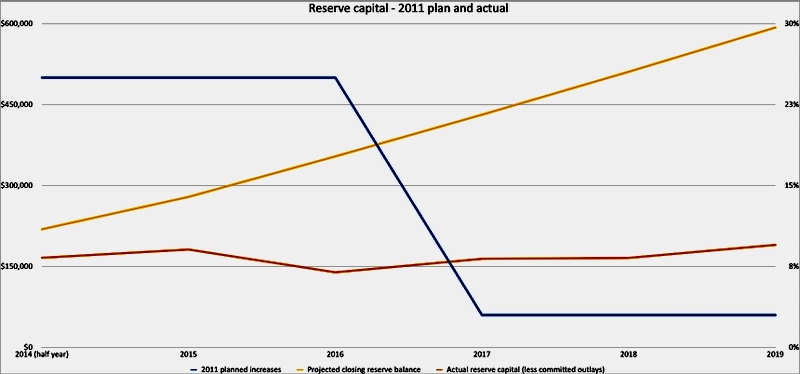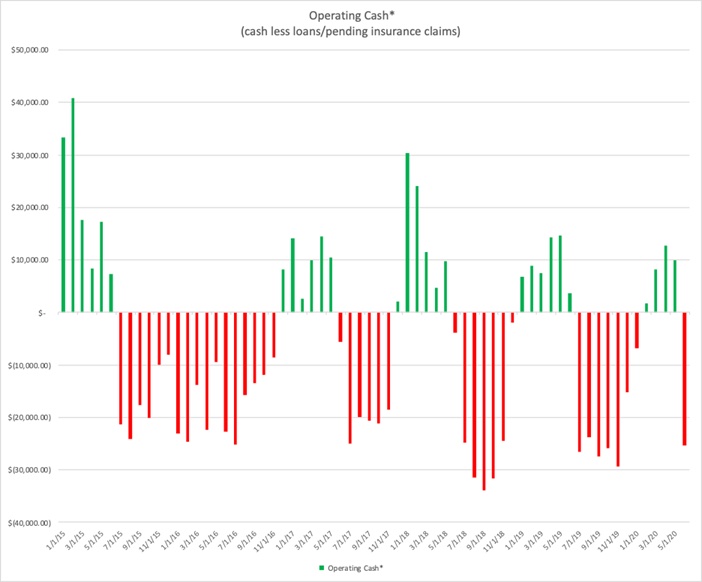| Condo fees. No one wants to increase condo fees, and everyone wants to spend fees on their pet project. This is simply human nature. | ||
| Special assessments seem to be the preferred method for funding repairs and replacements at Hawthorne Point. In 2018, the seawall project was funded by a $450,000 special assessment. In 2020, a $59,000 special assessment was imposed to fund the connection of the irrigation system to the city water supply and to replace the mailboxes (NOTE: the mailbox repair did not occur in 2020). In a December letter, the board proposed researching a multi-year capital improvement program. Much of this will need to be funded through special assessment(s). | ||
| But why are special assessments needed? Ideally a condominium association would set fees adequate to maintain the common elements of the associaiton, budgeting over the lifecycle of each component. However, it is tempting for new condominium associations to set low fees to attract buyers, and since newly built units do not generally require immediate repair, no one notices. This is not always true as a 2021 New York Times article about high rise condominiums made clear, but mostly new buildings are fine for many years. | ||
| In 2010, after decades of fees too low to maintain the common element, the association voted to approximately double fees over a five year period, increasing fees by 25% each year. Many expenses for the near future were expected: the need for replacement of the driveway lighting, the driveway itself, the need to increase the base coverage of the insurance to the level prescribed by the Master Deed, and increases in the cost of insurance, particularly flood insurance, etc. Reserves started to increase, and there was more money for routine maintenance, like painting. | ||
| The 2014 Board destroyed this progress. Rather than to apply the scheduled 25% increase, fees were cut by 15%. Maintenance work was paid for by raiding the reserve accounts. | ||
| The 2014 Board claimed that among other concerns, these steps were necessary to maintain the marketability of the units. As a result reserves are now about one third of target: | ||

|
||
| Another questionable practice has been to borrow operating funds from the reserve account. This has enabled actual operating capital to be negative for a good portion of the past seven years. The loan shows up as an item "Due from Res to Oper" in the balance sheet statements. Apparently following the lead of the 2014 Board, the 2020 Board has unwound this position by recharacterizing expenses as reserve expenses. This represents progress, as the reserve balance is now actually a cash reserve. | ||

|
||
|
This site is for personal use only. DISCLAIMER: Any opinions expressed in this website
Please direct all question or comments to the webmaster. |